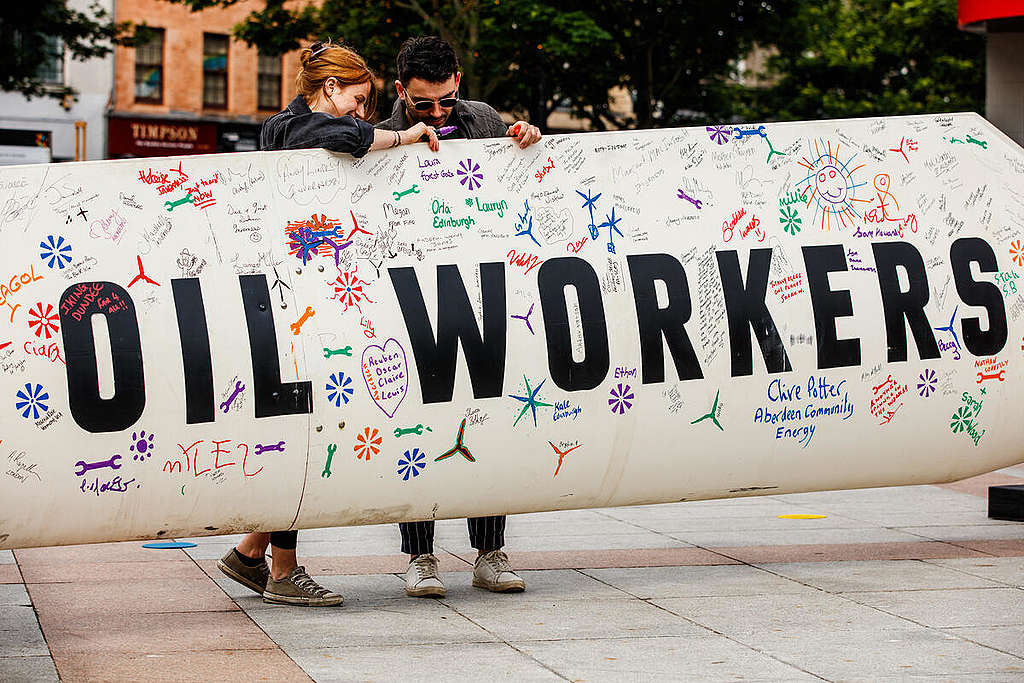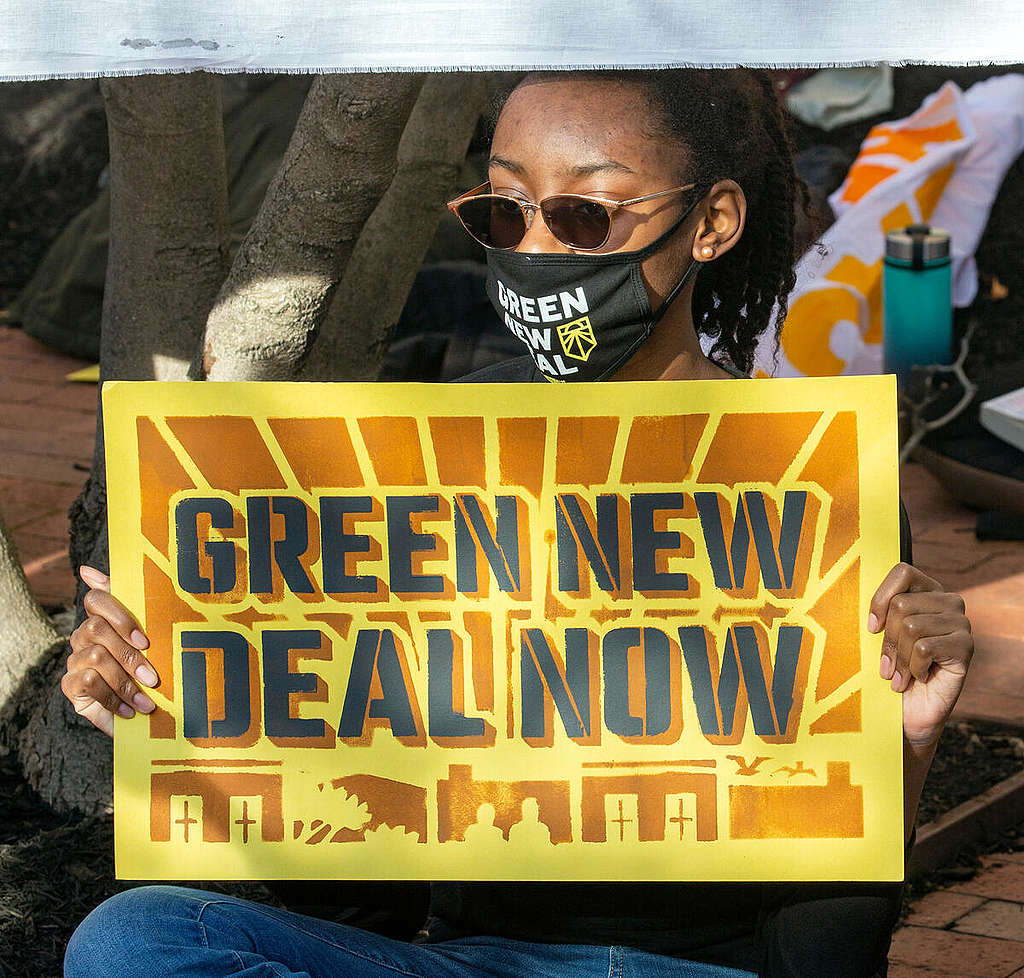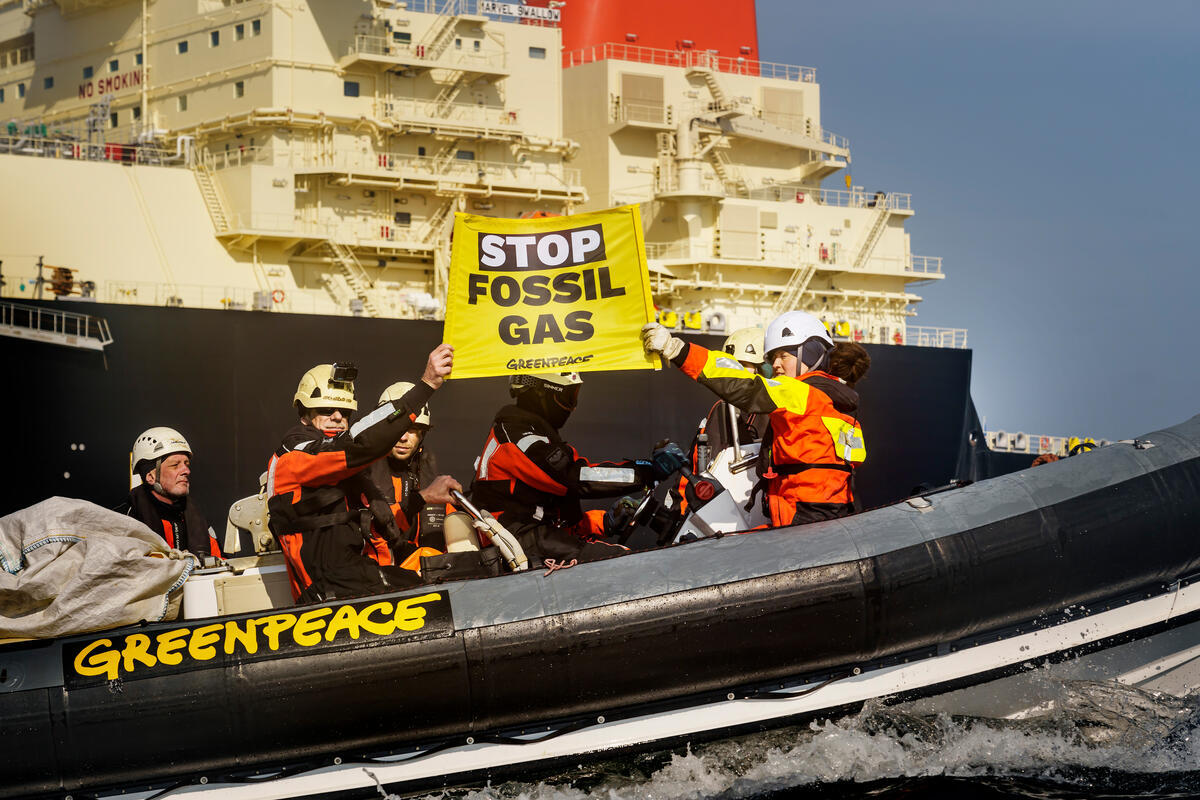On the east coast of Scotland, an important initiative is giving voice to offshore oil and gas workers. For over a year, Greenpeace UK has been working together with allies to survey workers on their perspectives and priorities in the looming energy transition, and some of them joined a tour of coastal communities.
Even though the oil and gas industry in Scotland has been experiencing a rapid and sustained decline, only 9% of the workforce has even heard of a Just Transition.
The International Trade Union Confederation explains that Just Transition means “better and decent jobs, social protection, more training opportunities and greater job security for all workers affected by global warming and climate change policies.”
What the survey and workers’ testimonials make clear is that morale is low amongst the workforce, those who feel they are bearing the brunt of the industry in decline. These workers are becoming more willing to retrain and move to new sectors. But they rightfully want to be supported in the move to secure and well-paid work that makes use of their skills and experience, including not having to pay for training and certification out of pocket.
Greenpeace believes that a transition that doesn’t have fairness at its core isn’t just ethically wrong – it’s also far less likely to succeed.

Climate Talks
As world leaders assemble in Scotland at the 26th UN Climate Summit, COP26, Greenpeace is calling for ambitious commitments to stem the devastation caused by floods and hurricanes, fires and drought, not of the future, but those that we are already experiencing today. There is no time to lose.
But if the early stages of this transition cause social stress and deepening of inequalities, then the political space for climate action will shrink over this next decisive decade. Just Transition must be at the heart of the critical climate decisions being made in every house of government from here on out.
American Jobs Plan
The USA is at a crossroads. President Joe Biden campaigned on an American Jobs Plan to put millions of people to work building a clean energy economy. Will the package of landmark legislation now before Congress be strengthened enough to be considered a win for both workers and the environment?
History has shown that unions win worker’s rights. So Greenpeace USA is supporting the coalition working to pass the Protecting the Right to Organize Act, or PRO Act, in addition to joining a coalition pushing for unionised jobs in wind power manufacturing. Because green jobs must also be good jobs.
President Biden still has a lot to prove. For decades, politicians, fossil fuel executives, and financiers have had plenty of warning that a green transition was unavoidable but refused to take action soon enough. We can’t turn back the clock. But we can hold those responsible to account, and compel them to foot the bill for the transition. The polluter pays principle is more important now than ever.

Justice for people and planet
So how can we make the principle of Just Transition accessible to all, and prioritized on the global agenda?
There already is growing recognition that environmental and social justice movements must stand side by side. There is hardly a union on this planet now that thinks that we can delay action on climate change while climate movements like Fridays for Future are putting the Just Transition demand centre stage.
In fact, the reputation of fossil fuel industries is so damaged with young people, they are fretting about recruiting the next generation of workers. And when Total oil refinery workers went on strike against layoffs without a credible transition plan, a number of green groups, including Greenpeace France, stood in solidarity.
It is in these borderlands, between intersecting movements, where the sparks of exciting new futures are igniting. There are many complex tensions and dynamics a transformation of this magnitude generates. Unpeeling the many layers of power and oppressions won’t always be easy. Nothing worth doing ever is. For generations, the workers movement is a testament to that, having carried the standard for resilience and stubborn optimism.
Green and just
Whether Scotland or America, or anywhere else, employment should come with decent wages, good working conditions, and the freedom to unionise. We must demand climate action that is both fast and fair. This is how we build a green, just society. We won’t get either if we don’t do both.




